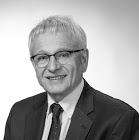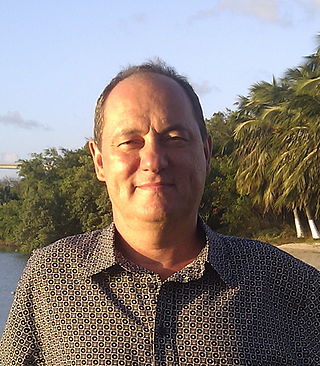Related Research Articles
Social simulation is a research field that applies computational methods to study issues in the social sciences. The issues explored include problems in computational law, psychology, organizational behavior, sociology, political science, economics, anthropology, geography, engineering, archaeology and linguistics.

NetLogo is a programming language and integrated development environment (IDE) for agent-based modeling.

In sociology, social complexity is a conceptual framework used in the analysis of society. In the sciences, contemporary definitions of complexity are found in systems theory, wherein the phenomenon being studied has many parts and many possible arrangements of the parts; simultaneously, what is complex and what is simple are relative and change in time.

Computational sociology is a branch of sociology that uses computationally intensive methods to analyze and model social phenomena. Using computer simulations, artificial intelligence, complex statistical methods, and analytic approaches like social network analysis, computational sociology develops and tests theories of complex social processes through bottom-up modeling of social interactions.
An agent-based model (ABM) is a computational model for simulating the actions and interactions of autonomous agents in order to understand the behavior of a system and what governs its outcomes. It combines elements of game theory, complex systems, emergence, computational sociology, multi-agent systems, and evolutionary programming. Monte Carlo methods are used to understand the stochasticity of these models. Particularly within ecology, ABMs are also called individual-based models (IBMs). A review of recent literature on individual-based models, agent-based models, and multiagent systems shows that ABMs are used in many scientific domains including biology, ecology and social science. Agent-based modeling is related to, but distinct from, the concept of multi-agent systems or multi-agent simulation in that the goal of ABM is to search for explanatory insight into the collective behavior of agents obeying simple rules, typically in natural systems, rather than in designing agents or solving specific practical or engineering problems.
An artificial society is an agent-based computational model for computer simulation in social analysis. It is mostly connected to the themes of complex systems, emergence, the Monte Carlo method, computational sociology, multi-agent systems, and evolutionary programming. While the concept was simple, actually realizing this conceptual point took a while. Complex mathematical models have been, and are, common; deceivingly simple models only have their roots in the late forties, and took the advent of the microcomputer to really get up to speed.

Web science is an emerging interdisciplinary field concerned with the study of large-scale socio-technical systems, particularly the World Wide Web. It considers the relationship between people and technology, the ways that society and technology co-constitute one another and the impact of this co-constitution on broader society. Web Science combines research from disciplines as diverse as sociology, computer science, economics, and mathematics.
Agent-based social simulation consists of social simulations that are based on agent-based modeling, and implemented using artificial agent technologies. Agent-based social simulation is a scientific discipline concerned with simulation of social phenomena, using computer-based multiagent models. In these simulations, persons or group of persons are represented by agents. MABSS is a combination of social science, multiagent simulation and computer simulation.

Dirk Helbing is Professor of Computational Social Science at the Department of Humanities, Social and Political Sciences and affiliate of the Computer Science Department at ETH Zurich.

Bernhard Mann is a social scientist and Master of Public Health, professor of social pedagogy, management and coaching at the iba Koeln - University of Cooperative Education, professor emeritus of health and social management at the FHM Bielefeld - University of Applied Sciences, former professor of health management and vice-president at the University of Applied Sciences Bamberg, adjunct professor of public health, social medicine and sociology at the University of Bonn, University of Koblenz-Landau, at the Berlin School of Public Health - Charité, Medical University, at several universities of educational cooperation as well as of applied sciences like in Bochum, Düsseldorf, Essen, Koeln and Wuppertal. He is public-health-coordinator of the German program at the IESS - Institut Européen des Sciences de la Santé Casablanca, Maroc.

Geoffrey Nigel Gilbert is a British sociologist and a pioneer in the use of agent-based models in the social sciences. He is the founder and director of the Centre for Research in Social Simulation, author of several books on computational social science, social simulation and social research and past editor of the Journal of Artificial Societies and Social Simulation (JASSS), the leading journal in the field.
DYNAMO is a simulation language and accompanying graphical notation developed within the system dynamics analytical framework. It was originally for industrial dynamics but was soon extended to other applications, including population and resource studies and urban planning.

Kathleen M. Carley is an American computational social scientist specializing in dynamic network analysis. She is a professor in the School of Computer Science in the Carnegie Mellon Institute for Software Research at Carnegie Mellon University and also holds appointments in the Tepper School of Business, the Heinz College, the Department of Engineering and Public Policy, and the Department of Social and Decision Sciences.
Rosaria Conte was an Italian social scientist. She was the head of the Laboratory of Agent Based Social Simulation at the ISTC-CNR in Rome, which hosts an interdisciplinary research group working at the intersection among cognitive, social and computational sciences. She was President of European Social Simulation Association and AISC. Rosaria Conte published more than 130 works among volumes, papers in scientific journals, conference proceedings and book chapters. Her scientific activity aims at explaining social behaviour among intelligent autonomous systems, and modeling the dynamics of norms and norm-enforcement mechanisms. Her research was characterized by a highly interdisciplinary approach, at the intersection among cognitive, social and computational sciences. In her name, the European Social Simulation Association assigns every other year the Outstanding Contribution Award for Social Simulation, whose first recipients are Nigel Gilbert and Uri Wilensky.

Juan Pavón is a Spanish computer scientist, full professor of the Complutense University of Madrid (UCM). He is a pioneer researcher in the field of Software Agents, co-creator of the FIPA MESSAGE and INGENIAS methodologies, and founder and director of the research group GRASIA: GRoup of Agent-based, Social and Interdisciplinary Applications at UCM. He is known for his work in the field of Artificial Intelligence, specifically in agent-oriented software engineering. He has been often cited by mainstream media, as a reference in Artificial Intelligence.
Computational social science is the academic sub-discipline concerned with computational approaches to the social sciences. This means that computers are used to model, simulate, and analyze social phenomena. Fields include computational economics, computational sociology, cliodynamics, culturomics, nonprofit studies, and the automated analysis of contents, in social and traditional media. It focuses on investigating social and behavioral relationships and interactions through social simulation, modeling, network analysis, and media analysis.
Rüdiger Valk is a German mathematician. From 1976 to 2010 he was Professor for Theoretical Computer Science (Informatics) at the Institut für Informatik of the University of Hamburg, Germany.

Prof. Daniel Thalmann is a Swiss and Canadian computer scientist and a pioneer in Virtual humans. He is currently Honorary Professor at EPFL, Switzerland and Director of Research Development at MIRALab Sarl in Geneva, Switzerland.
Muhammad Afzal Upal is a writer and a cognitive scientist with contributions to cognitive science of religion, machine learning for planning, and agent-based social simulation.

J. Stephen Lansing is an American anthropologist and complexity scientist. He is especially known from his decades of research on the emergent properties of human-environmental interactions in Bali, Borneo and the Malay Archipelago; social-ecological modeling, and complex adaptive systems. He is an external professor at the Santa Fe Institute and the Complexity Science Hub Vienna; a Fellow at the Center for Advanced Study in the Behavioral Sciences at Stanford; a visiting scholar at the Hoffman Global Institute for Business and Society at INSEAD Singapore, and emeritus professor of anthropology at the University of Arizona.
References
- ↑ Gilbert, Nigel; Troitzsch, Klaus G. (14 October 1999). Simulation for the Social Scientist. Open University Press. ISBN 0-335-19744-2.
- ↑ University of Koblenz. "Prof. Dr. Klaus Troitzsch's page" . Retrieved 6 February 2023.
- ↑ "ESSA 2005 conference web page" . Retrieved 6 February 2023.
- ↑ "ECMS 2012 conference web page" . Retrieved 6 February 2023.